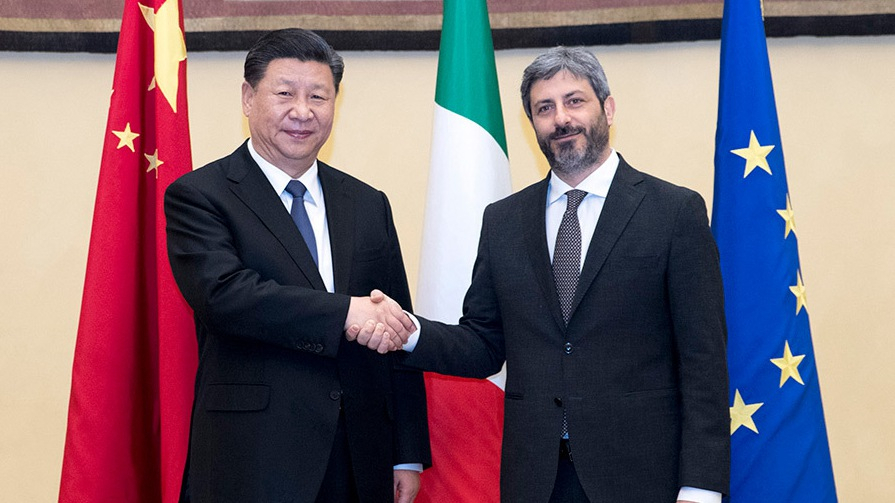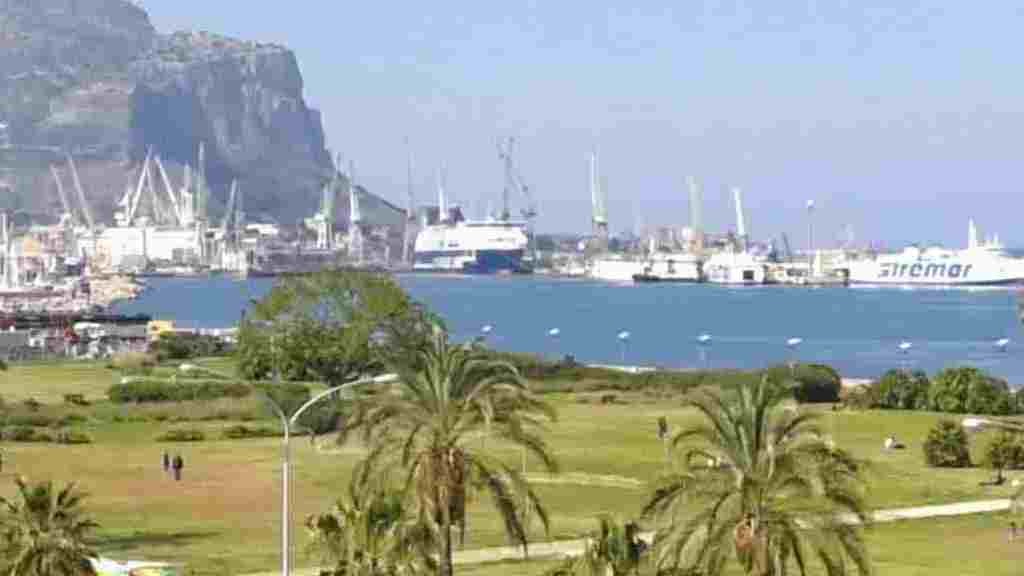
21:54, 25-Mar-2019
Is China 'dividing' the EU?

Chinese President Xi Jinping is in Rome on his first overseas trip this year. Italy and China have agreed to push forward their comprehensive strategic partnership. Experts say Italy's move will signify "a major member of the EU breaking ranks with the trade bloc," or "leading EU towards China's embrace."
"European politicians should be very careful to not be Americanized," commented by Dr. Wallace Shuaihua Cheng, a research fellow at the German Development Institute, as in America many researchers "have this paranoid style to exaggerate the danger which does not exist."
This is the first visit by a Chinese head of state to Italy in ten years, and this year is also the 15th anniversary of the comprehensive strategic partnership between the two sides connected by the ancient silk route.
Record trade between China and Italy

It is noticeable that the trade volume between China and Italy reached a record high of 54.2 billion U.S. dollars in 2018, and the volume between China and France surpassed 60 billion dollars.
Commenting on the growth of China-Italy trade volume against the global backdrop of trade uncertainty, Joerg Wuttke, former President of the EU Chamber of Commerce in China said that in the past year the European economy was growing which generated large demands, which was reflected in growth figures not only in Italy, but also in many other European countries.
"The European Union bought 1 billion euros of Chinese products every day," he said, “European goods also were welcomed and demanded by the Chinese market."
The Belt and Road Initiative

The two civilizations have had a relationship dating back more than 2,000 years and that bond is set to be rejuvenated as Italy is expected to join the Belt and Road Initiative (BRI), a modern version of the Silk Road.
The China-proposed BRI has been increasingly embraced by European countries. During the meeting of Chinese President Xi Jinping and his Italian counterpart Sergio Mattarella on Friday, President Xi encouraged the two sides to jointly build the BRI and enhance bilateral trade and investment and to boost cultural and people-to-people exchanges.
On his part, Italian counterpart Sergio Mattarella said Italy and China were at the two ends of the ancient Silk Road which had been a bond closely linking the two countries.
Italy supports Xi's initiative on jointly building the Belt and Road and believes that it will be conducive to Eurasian connectivity and common development, as well as to reviving the ancient Silk Road in modern times, Mattarella said.
Previously Italy Prime Minister Giuseppe Conte also said he is willing to attend the second Belt and Road Forum for International Cooperation scheduled for April in Beijing, adding that he sees in the BRI an opportunity for Italy and for Europe.
According to Dr. Wallace Shuaihua Cheng, Italy has put a lot of emphasis on the potential benefits it can get from BRI. Italy and China enjoy thousands of years of cultural connection, and it is logical to have a rejuvenated Silk Road initiative.
What does this mean for EU?
Though Italy has expressed positive attitudes toward the BRI, many other Western European countries have concerns about the program.
"The hesitation comes from the mechanism of EU," commented by Joerg Wuttke. The EU is used to the multilateral decision-making process as the 28 member states are trying to speak in one voice. They need to make sure BRI not only benefits Italy but also other countries in Europe, according to Mr. Wuttke.
Commenting on this point, Cheng mentioned there exists misunderstanding regarding the BRI. According to him, the BRI is always a two-way road and an open platform for any country to participate in or contribute to.
"It is the project for the 21st century," he said.
SITEMAP
Copyright © 2018 CGTN. Beijing ICP prepared NO.16065310-3
Copyright © 2018 CGTN. Beijing ICP prepared NO.16065310-3